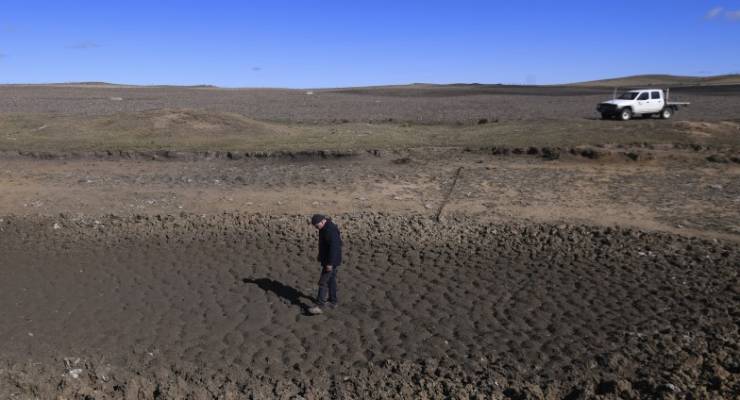
Yesterday, Crikey published a special climate change edition, Slow Burn; a look at Australia’s moments of progress and disappointment in the race against climate change. We expected a big response from our readers, and they did not disappoint. Readers reacted to the growing list of unexpected climate realists, the shareholder bodies leading the charge against fossil fuel lobbies, the Australian Defence Force’s strikingly pragmatic climate mentality and the existential crisis facing the insurance industry, to name just a few.
On climate change
Pablo Brait writes: The most glaringly hypocritical thing about insurance companies’ so-called response to global warming and increasing “natural” catastrophes is that most of them continue to make the problem worse by investing in and insuring fossil fuels. QBE is mentioned in your article as a major provider of insurance to the coal industry. This is a company that has had to pay out billions over the last few years due to extreme weather and is increasing premiums for many of its customers in high risk areas.
Despite this, its updated Climate Change “Action” Plan, released three weeks ago, has QBE continuing to support the expansion of coal, oil and gas infrastructure through both its insurance and investment activities for years to come. If global warming is putting your entire business model at risk, your revenues under constant pressure and making your product unaffordable — the least you could do is stop making it worse.
Dr. David Wright writes: Regarding your list of players in the climate change issue, the big absence is the education system. How is education, at primary, secondary and tertiary level responding to issues of ecological significance? Individual teachers work with understanding and insight but systemic responses are not apparent. We can teach climate change through statistics but how do we deliver an understanding that the priorities of the 20th century are what has got is to this situation, and we need to re-evaluate these for the future? I would like to know how the education ministers imagine us educating for a new future.
Robert Smith writes: It would have been more helpful if the resource companies and business groups had joined the “realist” side when the carbon price was being implemented instead of fighting it all the way. It’s too late now to get a sensible climate policy.
Hugh McColl writes: Glencore saying it’s capping coal production is not much different from Clive Palmer saying he will cap production at Queensland Nickel (or Barnaby Joyce saying his vote in New England is capped for family reasons). Big coal producers know for a fact that as coal export demand plummets the arse will drop out of the market and they will be downsizing. Clever marketing and political posturing to spruik the idea that downsizing = “capping”. The joke is on us.
John Brooker writes: The Western Australian EPA has recently adopted a policy requiring its oil and gas industry to provide offsets for their greenhouse gas emissions. These mostly foreign owned vested interests are, as usual, spending a fortune on advertising opposing this policy by falsely forecasting the end of mining investment and the loss of thousands of jobs, and the WA Government is showing every sign of letting them get away with it! The real effect on profitability is miniscule, less than 0.2% of profits. It is about time that our governments stood up to these vested interests and started to govern in the interest of the Australian public.
Send your comments, corrections, clarifications and cock-ups to boss@crikey.com.au. We reserve the right to edit comments for length and clarity. Please include your full name if you would like to be considered for publication.







While we are becoming more aware, it is now very clear that the cumulative effects of climate change do require drastic changes to our lifestyles, plus an end to the free banquets the rich have long enjoyed at our expense.
Climate change is imposing exponential increasing costs; the extensive damage done to Queensland’s Southern power distribution sub-transmission network infrastructure by Cyclone Marcia in 2015 was an example not only of those costs, but also of our total denial of that reality. It happened in a region not cyclone-prone.
Australia is considered to be one of the most sensitive nations to the impact of climate change, meaning the potential impact on deaths and the cost to GDP of weather events, and the number of people otherwise affected by homelessness and physical injury. Our exposure is the second highest globally after China, and well above that of other nations.
Our relative wealth and low debt is more useful for mitigation than prevention – but of course the filthy rich who own politicians demand to keep that money for their amusements. Governments are simply refusing to recognise the economic and social costs of natural disasters, so they spend thirty times more on repair than they do on preparation. Conversely, we need to support the climate-change-damaged where they are, rather than steadily abandon that increasing number to the margins of a society itself made steadily less resilient by such policies of abandonment.
Too late for this government, its just flailing around for votes. Probably too late but the planet as well, oh, the planet will survive, but we aren’t likely to. 🙁